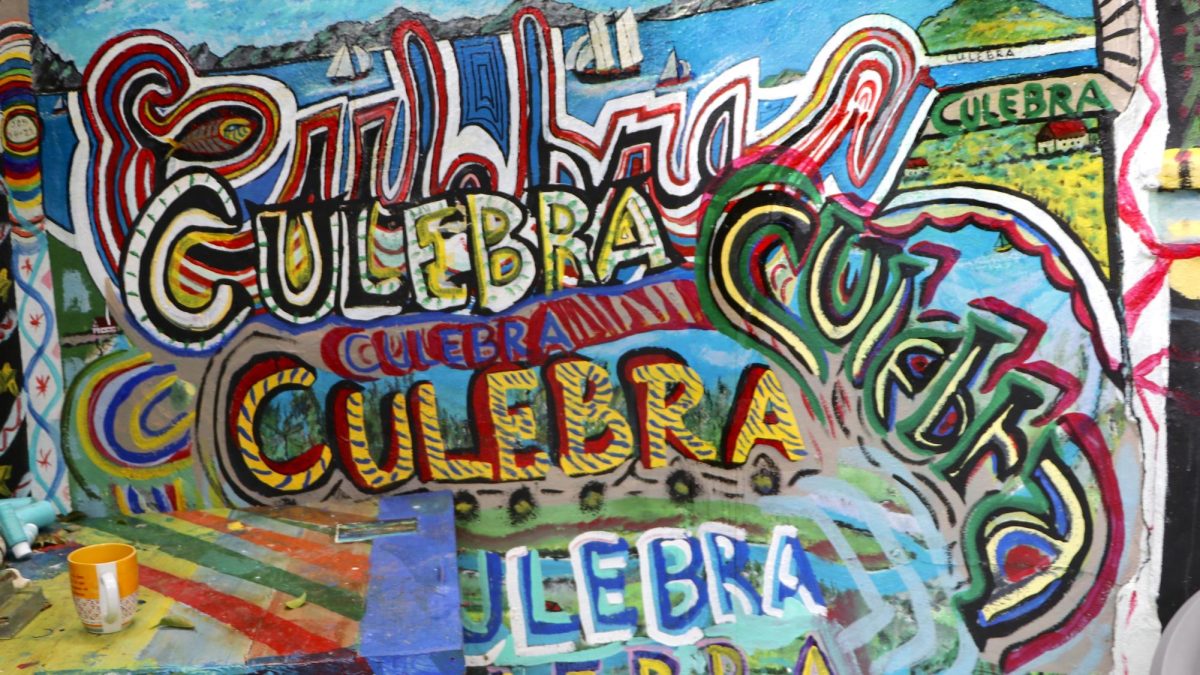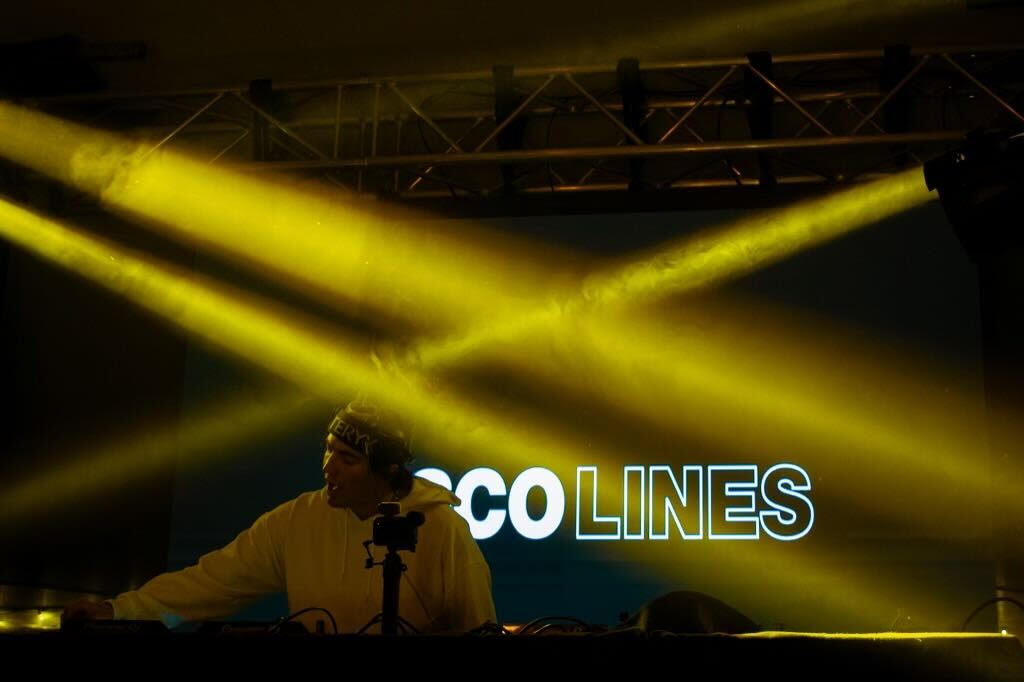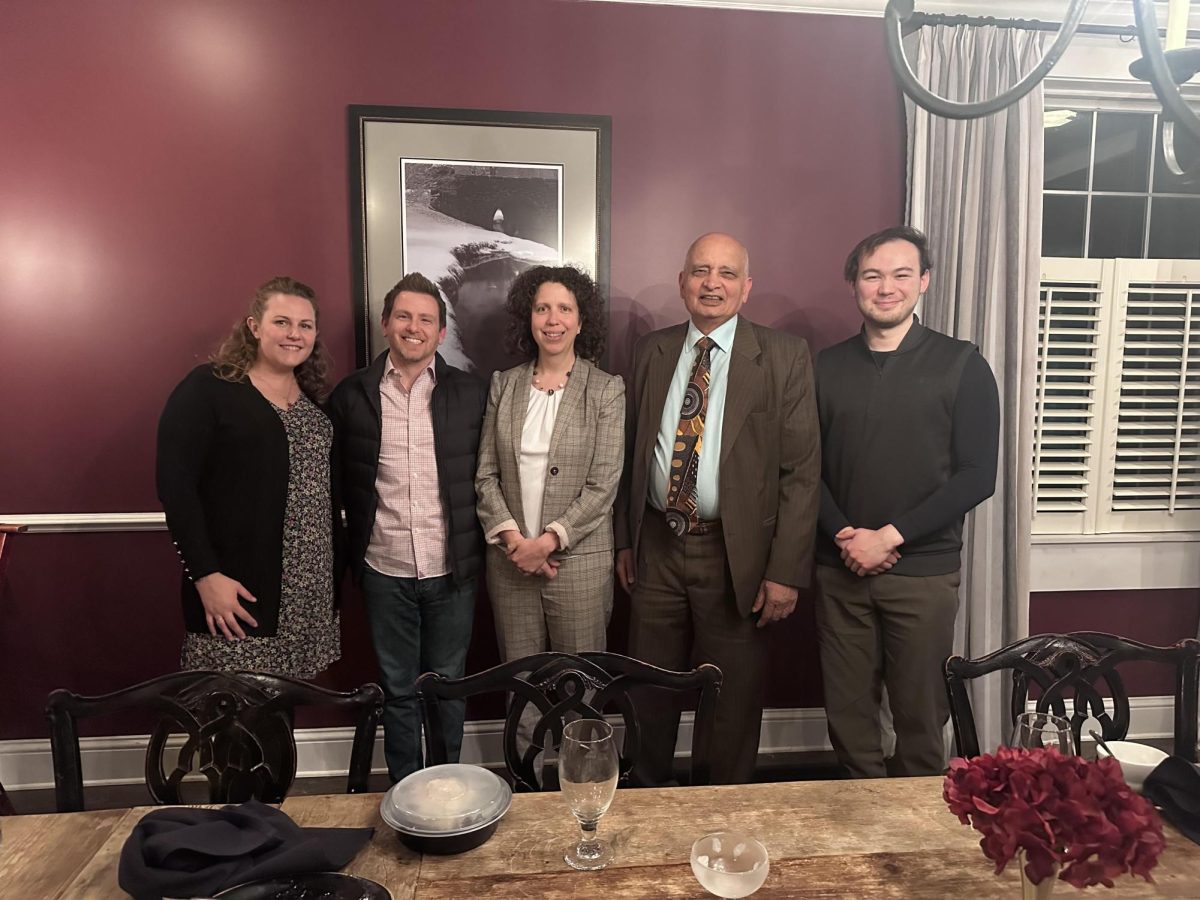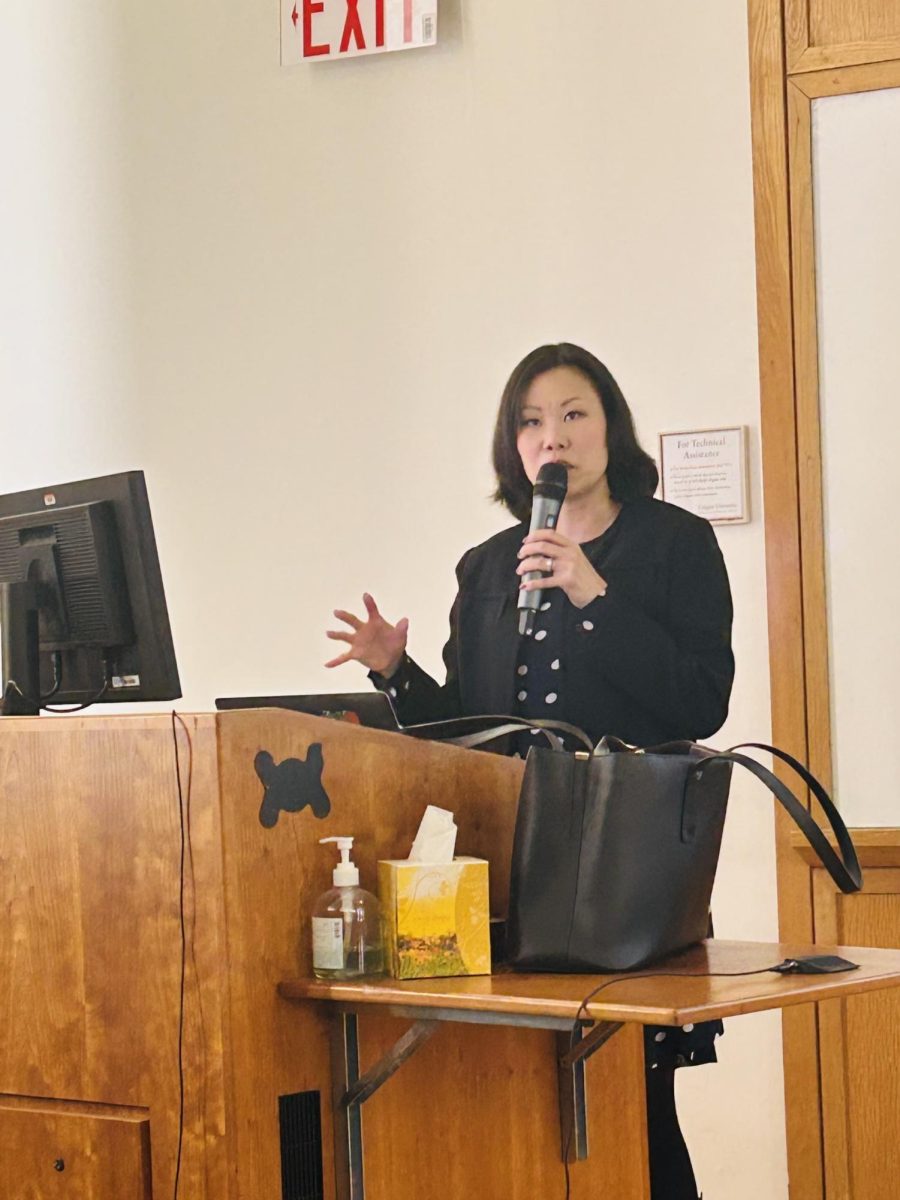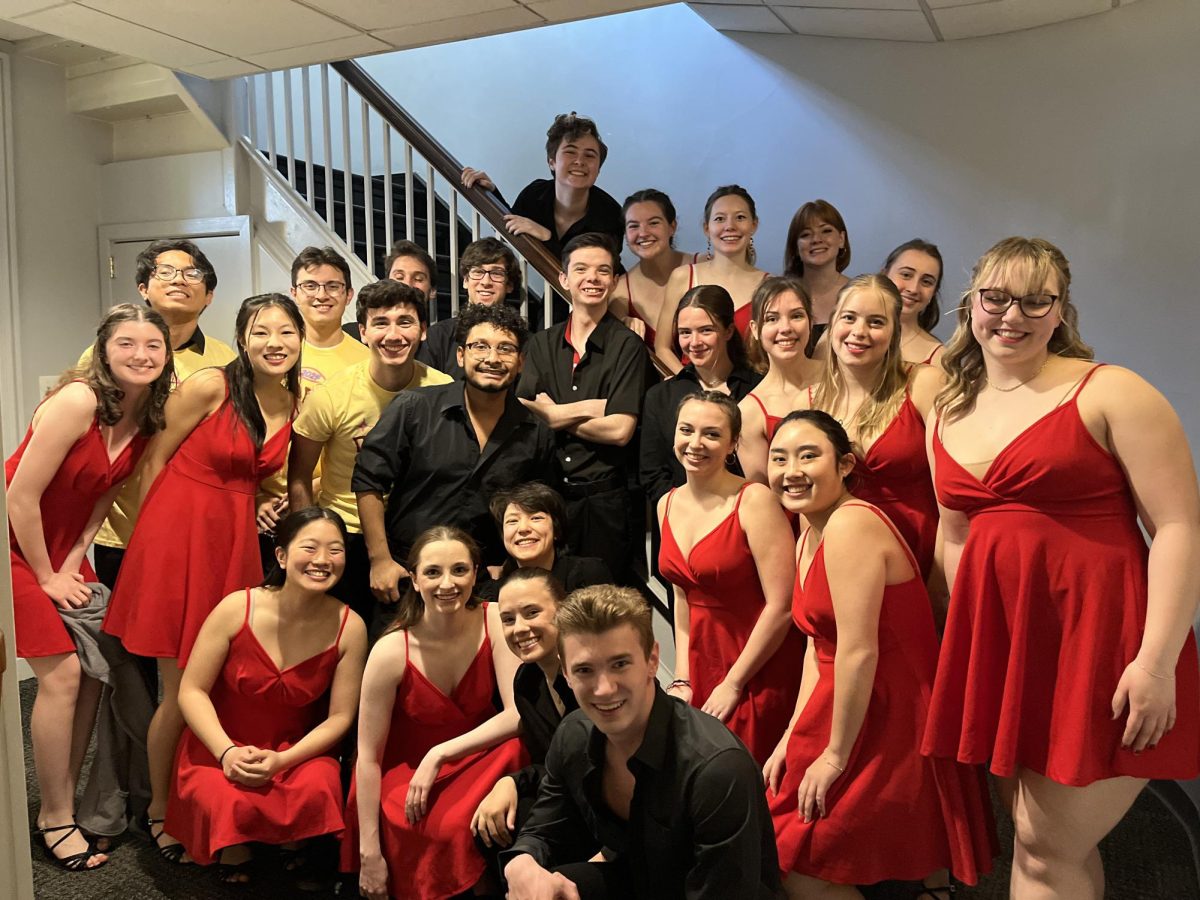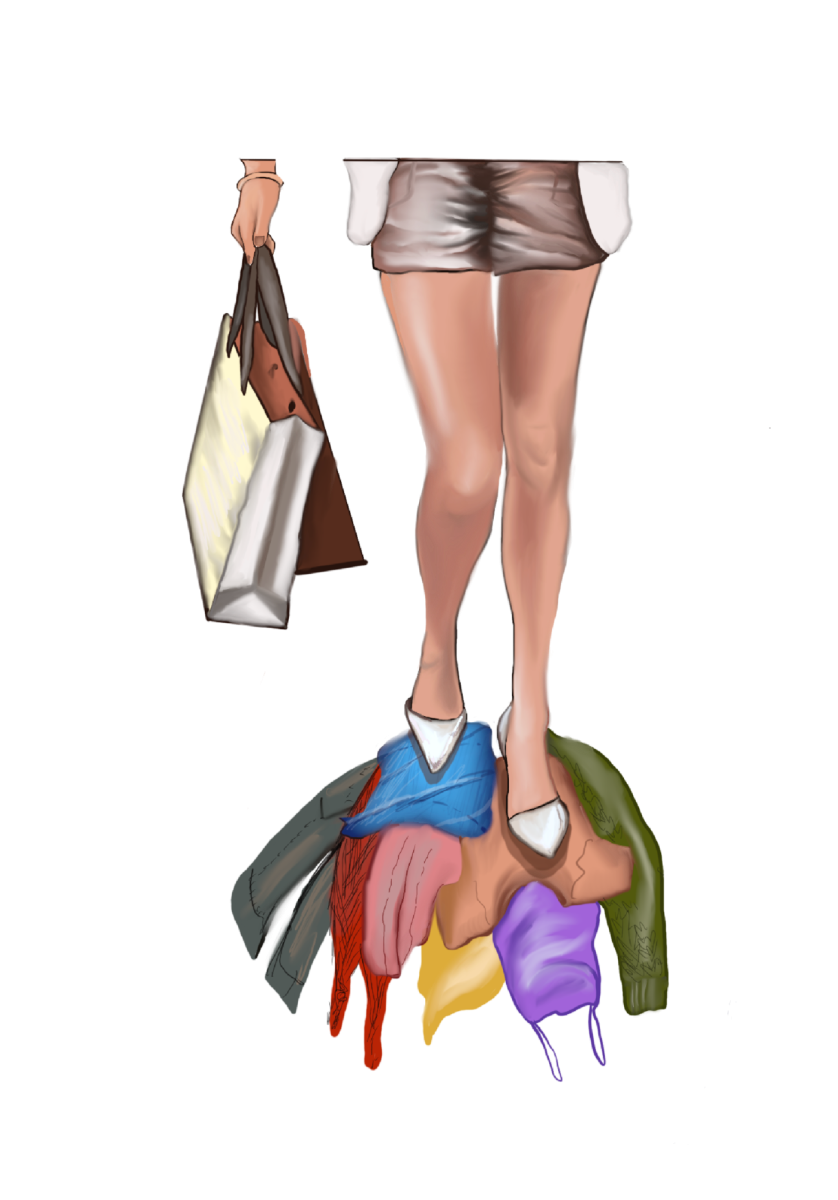Junior Jorge Rochet led a discussion on his study of the cultural, political and environmental impacts of the presence of the United States Navy in the Puerto Rican islands of Vieques and Culebra. Rochet’s discussion took place on Tuesday, Nov. 28. His student-initiated project, “Ni Una Bomba Mas,” compiled historical and ethnographic research on the naval training that occurs off the shores of these two islands and how its presence affects the lives of Viequenses and Culerabrenses residents.
Rochet began the discussion with the historical context of this scarcely-told conflict. The United States has had a naval presence on these islands since the country invaded Puerto Rico in 1898 and began evicting Culerabrenses from their homes to use the municipality as bombing and gunnery ranges in 1902. They took control of two-thirds of Vieques in 1942, exiling over 3,000 residents to neighboring island Saint Croix. Military practices consisted of bombings in the sea, air and on the ground. Naval forces formally left Culebra and Vieques in 1975 and 2003, respectively, but they left behind a toxic stain on the environment.
To illustrate this impact, Rochet pointed to a 2003 study from The Guardian. The study found unusually high levels of toxic metals like mercury, uranium and arsenic in Viequenses’ hair and urine, although a causal relationship between this data and the Navy’s presence has not been substantiated.
Rochet shed light on the many fatalities of Viequenses and Culerabrenses at the hands of the U.S. Navy. He pointed to the travesty of David Sanes, a civilian security guard who was killed by two U.S. bombs during his shift at a Viequenses observation post in August 1999. According to Rochet, Sanes’ death ignited a decades-long protest and struggle to be free of the U.S. Navy and disarm the many unexploded bombs pervading the land. Rochet emphasized that this is an ongoing conflict.
“We have a misconception that colonialism is just a thing of the past, but just like with the Vieques and Culebra conflict, there is evidence that this is happening right now,” Rochet said.
“Ni Una Bomba Mas” brought Rochet to Vieques and Culerabrenses, where he analyzed the environmental impacts of U.S. naval training and heard first-person stories from Puerto Ricans impacted directly by this issue.
One Culebra man with whom Rochet spoke, Teófilo ‘Fily’ Bermúdez, spoke of the helplessness he felt when faced with the juggernaut of U.S. colonialism.
“Well, for me — I am leftist — the relationship is colonial. At least for me it’s colonial. They are the ones that decide what they are going to do,” Bermúdez told Rochet. “No matter how loud we scream here, they’re the ones who dictate. That is an uphill battle.”
Ismael Guadalupe, a political activist born and raised in Vieques, gave Rochet a powerful message for the Colgate University community.
“I would ask you that, wherever your voice reaches, you let the situation of Vieques be known. I think that in any place where there is an act of injustice, one must show solidarity. And we want for this to gain strength and divulge once again. At the University where you are, let us be known,” Guadalupe said.
Rochet’s discussion changed the perspectives of many audience members, including a former Air Force officer who discussed how this presentation opened his eyes to the differences between military missions in states versus in territories. The student mentioned that there is little responsibility to clean up anything on the islands after military missions, rather they are seen as a “sandbox.” The student had a new awareness of the military’s actions after Rochet’s presentation. Rochet encouraged this kind of open-mindedness in the rest of the Colgate community.
To conclude his presentation, he urged students and faculty to listen, talk, educate and take action. He pushed listeners to keep thinking critically and educating themselves about stories pushed into the periphery.
“I needed to learn how to unlearn. A lot of our education is filtered by the United States. I had to learn the truth by talking to my mom, not through textbooks,” Rochet said. “Just because you’ve learned something your whole life doesn’t mean it’s right. Now is the time for prestigious institutions like Colgate to step up to these issues of environmental racism, to start investing in the islands and to educate its students about these untold stories.”
Rochet had plans to write a play based on the untold stories of the Culerabrense and Viequenses people and hoped to eventually create a documentary to be shown at Colgate.


